
In American theater, summer-stock theater is a theater that presents stage productions only in the summer. The name combines the season with the tradition of staging shows by a resident company, reusing stock scenery and costumes. Summer stock theaters frequently take advantage of seasonal weather by having their productions outdoors, under tents set up temporarily for their use, or in barns.
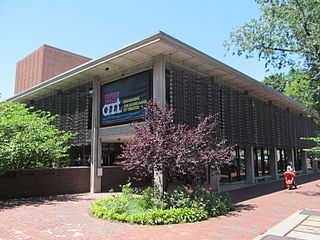
The American Repertory Theater (A.R.T.) is a professional not-for-profit theater in Cambridge, Massachusetts. Founded in 1979 by Robert Brustein, the A.R.T. is known for its commitment to new American plays and music–theater explorations; to neglected works of the past; and to established classical texts reinterpreted in refreshing new ways. Over the past forty years it has garnered many of the nation's most distinguished awards, including a Pulitzer Prize (1982), a Tony Award (1986), and a Jujamcyn Award (1985). In 2002, the A.R.T. was the recipient of the National Theatre Conference's Outstanding Achievement Award, and it was named one of the top three theaters in the country by Time magazine in 2003. The A.R.T. is housed in the Loeb Drama Center at Harvard University, a building it shares with the Harvard-Radcliffe Dramatic Club. The A.R.T. operates the Institute for Advanced Theater Training.
Endgame, by Samuel Beckett, is an absurdist, tragicomic one-act play about a blind, paralyzed, domineering elderly man, his geriatric parents and his doddering, dithering, harried, servile companion in an abandoned house in a post-apocalyptic wasteland who mention they are awaiting some unspecified "end" which seems to be the end of their relationship, death, and the end of the actual play itself. Much of the play's content consists of terse, back and forth dialogue between the characters reminiscent of bantering, along with trivial stage actions; the plot is held together by the development of a grotesque story-within-a-story that the character Hamm is relating. An aesthetically profound part of the play is the way the story-within-story and the actual play come to an end at roughly the same time. The play's title refers to chess and frames the characters as acting out a losing battle with each other or their fate.
Mabou Mines is an experimental theatre company founded in 1970 and based in New York City.
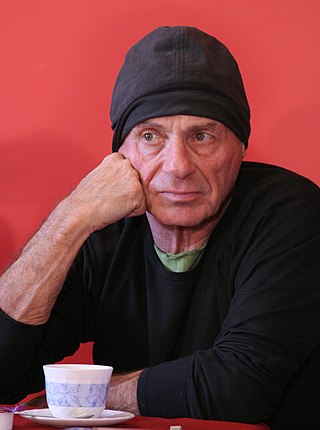
Esser Leopold Breuer was an American playwright, theater director, academic, educator, filmmaker, poet, and lyricist. Breuer taught and directed on six continents.
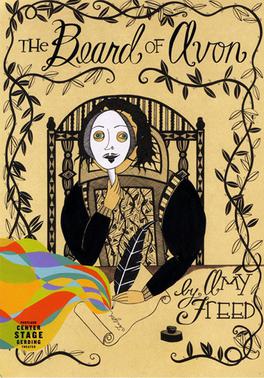
The Beard of Avon is a play by Amy Freed, originally commissioned and produced by South Coast Repertory in 2001. It is a farcical treatment of the Oxfordian theory of Shakespeare authorship, in which both Shakespeare and his wife become involved, in different ways, with secret playwright Edward de Vere and find themselves helping to present the works of several other secretive authors under Shakespeare's name, including Queen Elizabeth I herself.
Amy Freed is an American playwright. Her play Freedomland was a finalist for the 1998 Pulitzer Prize for Drama.
Lillian Groag is an Argentine-American playwright, theater director, and actress. Her plays include The Ladies of the Camellias, The Magic Fire, and The White Rose.
Anna Kepe, also known by her married name of Anna Kepe Haas, is a director, actress, producer, pedagogue and entrepreneur. Kepe received her MFA from The Shakespeare Theatre, Academy for Classical Acting in Washington, D.C. under the direction of Michael Kahn.
Susan Hilferty is an American costume designer for theatre, opera, and film.
Tony Taccone is an American theater director, and the former Artistic Director of Berkeley Repertory Theatre in Berkeley, California.
Barry Edelstein is an American theatre director and author. He was appointed as Artistic Director of the Old Globe Theatre in San Diego, California, on October 17, 2012. He was also Director of the New York Shakespeare Festival / Public Theater's Shakespeare Lab conservatory, 2007-2012, and Director of the Public Theater's Shakespeare Initiative, 2008-2012.
Ruth Maleczech was an American avant-garde stage actress. She won three Obie Awards for Best Actress in her career, for Hajj (1983), Through the Leaves, (1984) and Lear (1990) and an Obie Award for Design, shared with Julie Archer, for Vanishing Pictures (1980), which she also directed. Her performance as Lear was widely acclaimed: her King Lear was portrayed as an imperious Southern matriarch.
Dr. Polina Klimovitskaya is a Russian director, Master Acting teacher, and actress. She is the founder of Terra Incognita Theater and has taught acting at Yale University, New York University, and Michael Howard Studios in New York City, among other institutions.
Michael O'Sullivan was an American actor, "larger than life," who appeared on Broadway, at Lincoln Center, on the London stage, at San Francisco's Actor's Workshop and in many regional theaters and festivals of America throughout his brief career in the late 1950s and '60s.
George Michael Bartenieff was a German-born American stage and film actor. He was noted both for his character roles in commercial and non-commercial films and on television, and for his work in the avant-garde theatre and performance world of downtown Manhattan, New York City in the 1960s and 1970s. He was a co-founder of the Theatre for the New City, and of the Greenwich Village Halloween Parade.
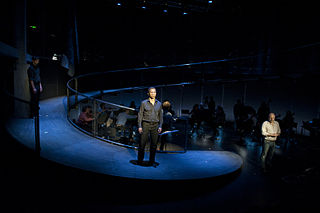
In the Penal Colony is a chamber opera in one act and 16 scenes composed by Philip Glass to an English-language libretto by Rudy Wurlitzer. The opera is based on Franz Kafka's German-language short story In the Penal Colony. It was commissioned by ACT Theatre in Seattle, Washington, where it premiered on August 31, 2000. It has a running time of approximately 80 minutes and is scored for two singers and a string quintet.
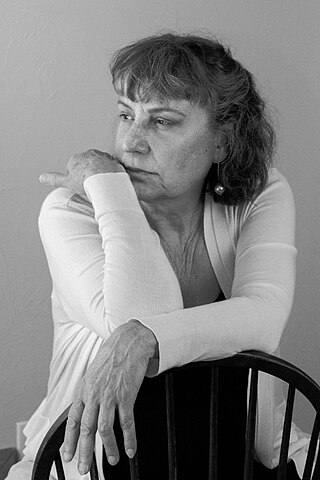
Mary Overlie was an American choreographer, dancer, theater artist, professor, author, and the originator of the Six Viewpoints technique for theater and dance. The Six Viewpoints technique is both a philosophical articulation of postmodern performance and a teaching system addressing directing, choreographing, dancing, acting, improvisation, and performance analysis. The Six Viewpoints has been taught in the core curriculum of the Experimental Theater Wing within Tisch School of the Arts at New York University since its inception (1978).
Ellen McElduff is an American film, television, and stage actress, best known for roles in JFK, Oz, Homicide: Life on the Street, and many acclaimed stage productions.





